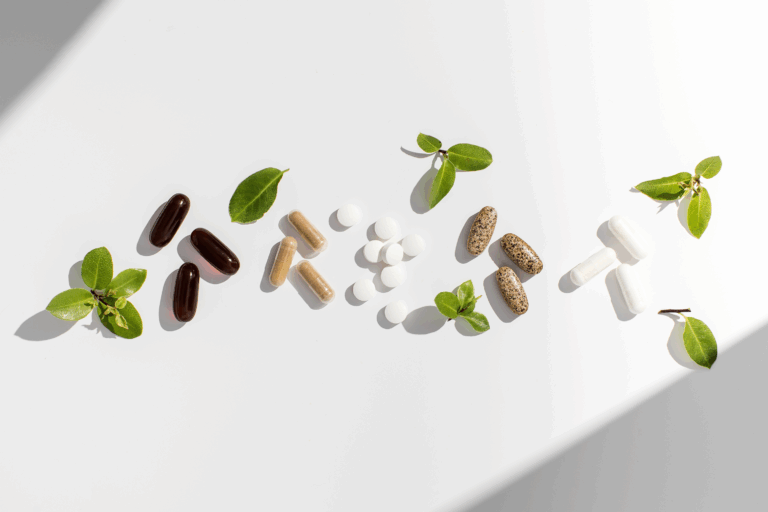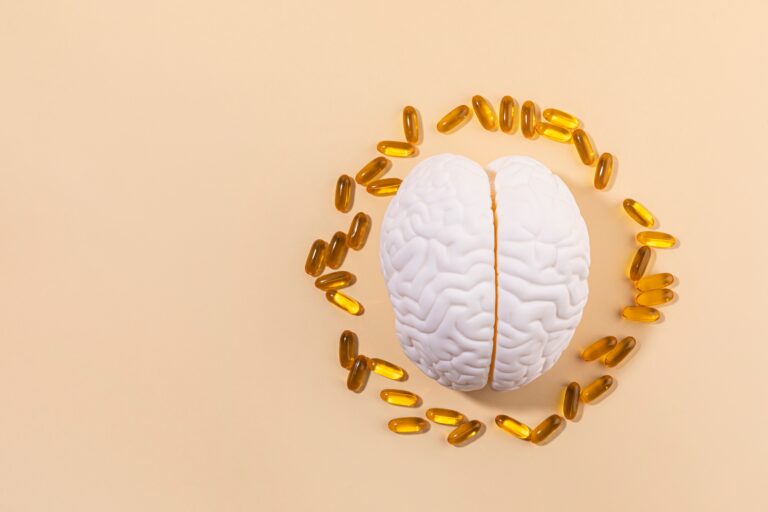Understanding Electrolytes
Summary
Electrolytes are critical to many fundamental bodily processes, including fluid balance and nerve impulse transmission. Obtaining electrolytes from healthy foods and herbs can help optimize these processes and ensure proper hydration.
Understanding Electrolytes: What are they?
Electrolytes are minerals with a positive or negative charge.1 This characteristic is critical to their functions in the body, including maintaining electrical charges in cells, generating and conducting action potentials in nerves and muscles, and controlling fluid balance.1 They are also required for bone composition and function, muscle metabolism, neuronal processes, oxygen transport, and acid-base homeostasis, in addition to many other biological processes.2
Small deviations in electrolytes in the blood can cause serious health problems and even increase the risk of mortality.3
Significant electrolytes in the body include sodium, potassium, magnesium, calcium, and phosphorous. They can be obtained via the diet, found in common foods and herbs:
| Electrolyte | Dietary Sources | Herbal Sources |
| Sodium | Beetroot, olives, cottage cheese | Chili powder, horseradish |
| Potassium | Beans, potatoes, winter squash | Dandelion, stinging nettle |
| Magnesium | Spinach, avocado, pumpkin seeds | Coriander, spearmint |
| Calcium | Yogurt, tofu, broccoli | Basil, cinnamon |
| Phosphorous | Lentils, salmon, nuts | American ginseng, bitter melon |
Some individuals may not consume adequate levels of key electrolytes if their diet is low in fruits and vegetables. Additionally, sodium is commonly over-consumed as part of the Standard American Diet while magnesium, potassium, and calcium are often found in short supply. As such, some people may benefit from the addition of an electrolyte supplement in their diet.
The Science Behind Electrolytes
As a group, electrolytes regulate fluid balance, conduct action potentials, and maintain electrical charge in cells, but they also have unique functions. Sodium is a major factor in determining the volume of extracellular fluid and pressure.1,2 It is also involved in promoting digestive secretions, aiding in the absorption of other nutrients, blood pressure regulation, and contributing to cell membrane potential and enzymatic reactions.2,4 These processes are critical to healthy cells, tissues, and organs
Potassium is another major electrolyte in the body and is closely linked to sodium. Sodium and potassium are transported in opposite directions via a membrane pump that exchanges three sodium ions for two potassium ions. Therefore, if sodium levels are too high or too low, it can have a significant effect on potassium transport and metabolism. Potassium regulates membrane potential, maintains osmotic pressure, influences electrolyte homeostasis, mediates acid-base balance, controls nerve impulses, and contributes to protein biosynthesis and the conversion of blood sugar into glycogen.2
Other functions of key electrolytes include:1,2,4
- Calcium- skeletal mineralization, muscle contraction, nerve impulse transmission, blood clotting, hormone secretion, signal transduction
- Magnesium- muscle function, neurological health, neurotransmitter release, blood pressure regulation, improving endothelial function, energy metabolism,
- Phosphorous- component of bones and teeth, ATP synthesis, nucleotide formation, regulator of vitamin D and calcium metabolism.
The ability of electrolytes to conduct a charge is critical for cellular processes including muscle contraction, chemical reactions, signal transduction, and nerve impulses. During muscle contraction, motor neurons stimulate muscle cells, generating electrical activity in the muscle, and causing contraction. Specifically, calcium directs muscle fibers to slide and move over each other to shorten, or contract, the muscle while magnesium allows the muscle fibers to relax.1
Similarly, nerve impulses are generated by changes to the electrical charge of the nerve cell membrane, which occurs due to the movement of sodium across that membrane. From there, a chain reaction follows among sodium ions, altering the charge of the membrane along the length of the axon which propagates the signal.
Understanding Electrolytes and Hydration
Electrolytes are critical to fluid balance at the cellular level as well as hydration of the body. The amount of fluid in a cellular compartment depends on the concentration of present electrolytes. When electrolyte concentration is high, primarily sodium, fluid moves into that compartment in a process called osmosis. If electrolyte levels are low, fluid will move out of that compartment to adjust to the electrolyte concentration and maintain fluid balance among all compartments. Because the body tightly regulates total body water and osmolarity, fluid balance at the cellular level is important for hydration status throughout the body.
Several electrolytes are closely linked to hydration, especially sodium. Sodium helps bring water into cells, maintaining cellular hydration and fluid balance which prevents dehydration. In turn, these electrolytes are regulated by components of the fluid balance system.1 For example, sodium transport and potassium secretion are controlled by the hormone aldosterone, a key regulator of fluid balance.1
Additionally, the most common electrolyte disorder is hyponatremia, defined as sodium levels less than 135 mmol/L.1 This condition is often due to excessive consumption of water, which dilutes the sodium concentration of the blood.1 Symptoms of hyponatremia include neurological issues such as headaches, confusion, nausea, and delirium.1
Risks of Electrolyte Imbalance
Maintaining electrolytes in a healthy range is extremely important for overall health, especially related to fluid balance and neurological health. If sodium concentrations change, even slightly, it produces water shifts resulting in brain swelling or shrinkage.5 These changes affect brain function.5 Too much sodium can also increase blood pressure, while potassium helps lower it.6 While diet and supplements can provide electrolytes, it is estimated that up to 15 percent of the general population may have electrolyte imbalances.2 These imbalances are associated with a variety of diseases, primarily hypertension and cardiovascular disease, but also osteoporosis, and diabetes/insulin resistance.2
Lifestyle factors can affect the absorption and metabolism of electrolytes, resulting in suboptimal levels even if dietary intake appears normal. For example, alcohol use disorder and GI conditions can affect electrolyte levels, as can certain medications.1 Additionally, both acute and chronic illness can affect external fluid intake as well as internal electrolyte balance.7
Monitoring and Testing for Electrolyte Levels
Electrolytes can be measured as part of routine lab work for patients. Specific tests can also help detect specific electrolyte-related issues, including aldosterone blood test, blood osmolality test, and urine concentration test. However, it is important to conduct thorough testing as other factors can influence electrolyte measures, including hormones, proteins, and total body volume status.1 Monitoring levels over time can help ensure better patient outcomes, in both the short- and long-term.
Electrolytes are critical for healthy fluid balance, hydration status, nerve impulse transmission, and many other cellular functions. Ensuring optimal intake through dietary choices, and supplements when appropriate, can help keep cellular electrolytes in the proper range. Understanding the mechanisms behind electrolyte effects as well as nutritional sources of electrolytes can help support your patients’ health needs.
- Shrimanker I, Bhattarai S. Electrolytes. [Updated 2023 Jul 24]. In: StatPearls [Internet]. Treasure Island (FL): StatPearls Publishing; 2023 Jan-. Available from: https://www.ncbi.nlm.nih.gov/books/NBK541123/.
- Schiefermeier-Mach, N., Egg, S., Erler, J., Hasenegger, V., Rust, P., Konig, J., Purtscher, A.E. (2020). Electrolyte Intake and Major Food Sources of Sodium, Potassium, Calcium and Magnesium among a Population in Western Austria. Nutrients, 12:1956.
- Kear, T.M. (2017). Fluid and Electrolyte Management Across the Age Continuum. Nephrol Nurs J, 44:
- Iqbal, S., Klammer, N., Ekmekcioglu, C. (2019). The Effect of Electrolytes on Blood Pressure: A Brief Summary on Meta-Analyses. Nutrients, 11:1362.
- Diringer, M. (2017). Neurological manifestations of major electrolyte abnormalities. Handb Clin Neurol, 141:705.
- Perez, V., Chang, E.T. (2014). Sodium-to-Potassium Ratio and Blood Pressure, Hypertension, and Related Factors. Adv Nutr, 5(6):712.
- Allison, S. (2004). Fluid, electrolytes and nutrition. Clin Med, 4:573.







